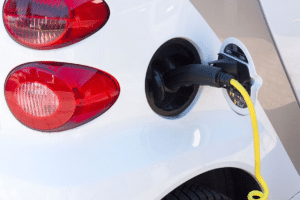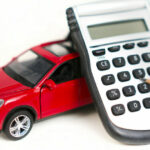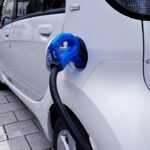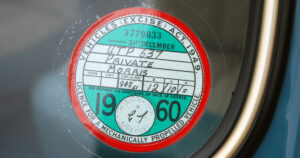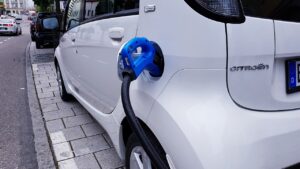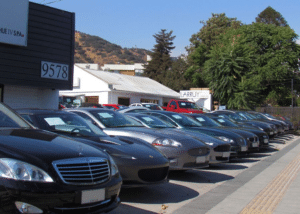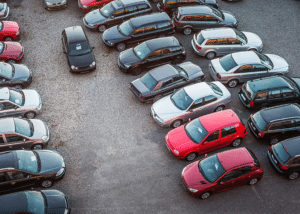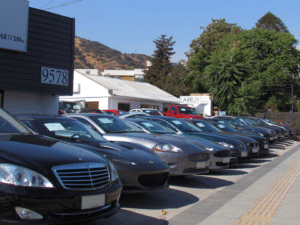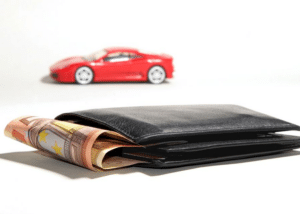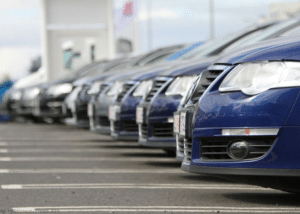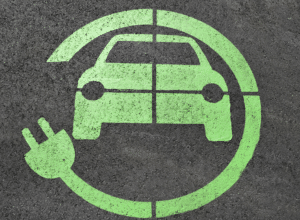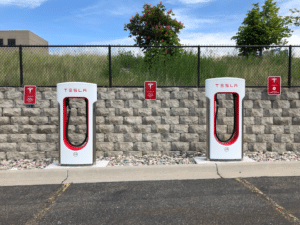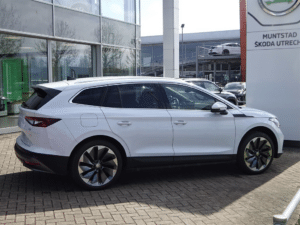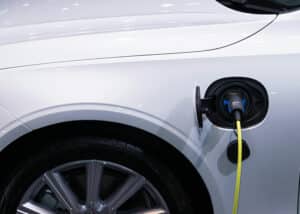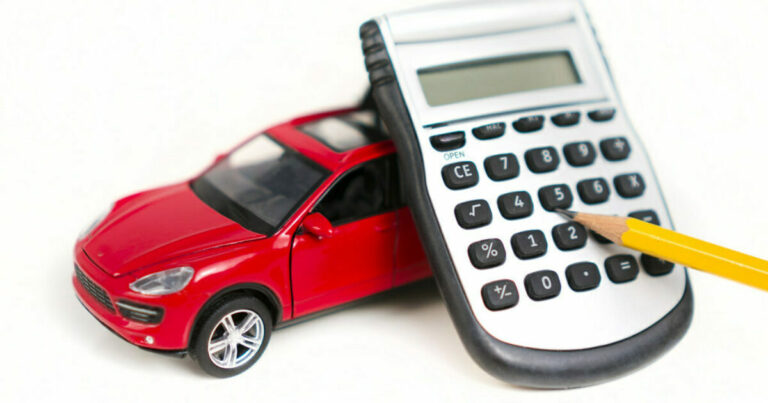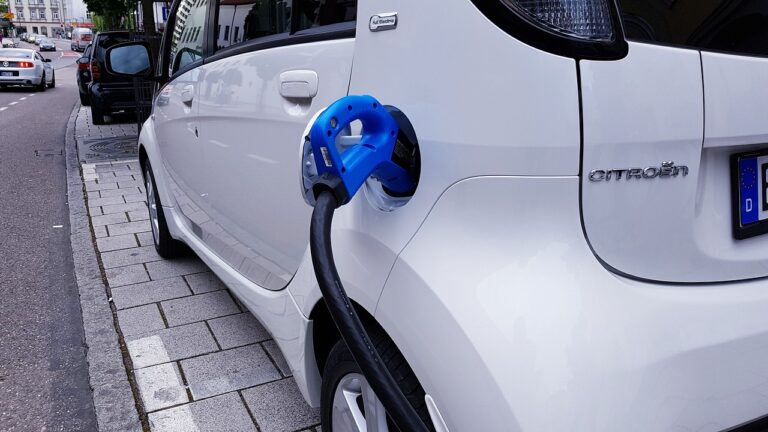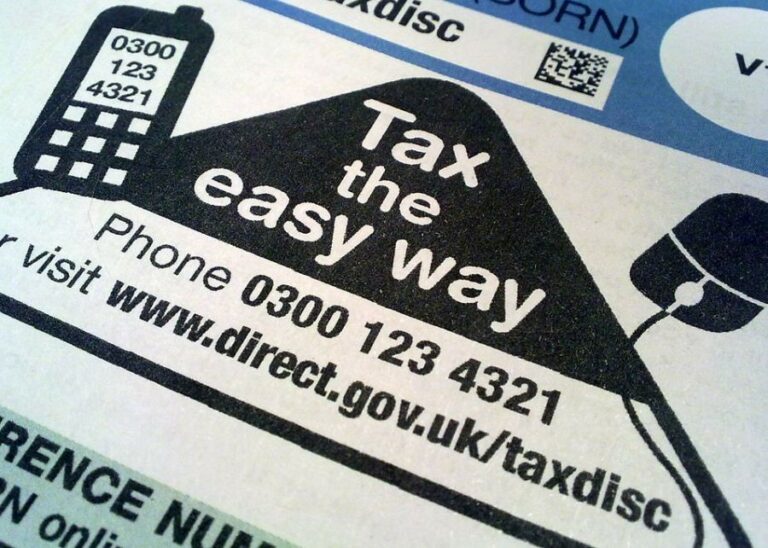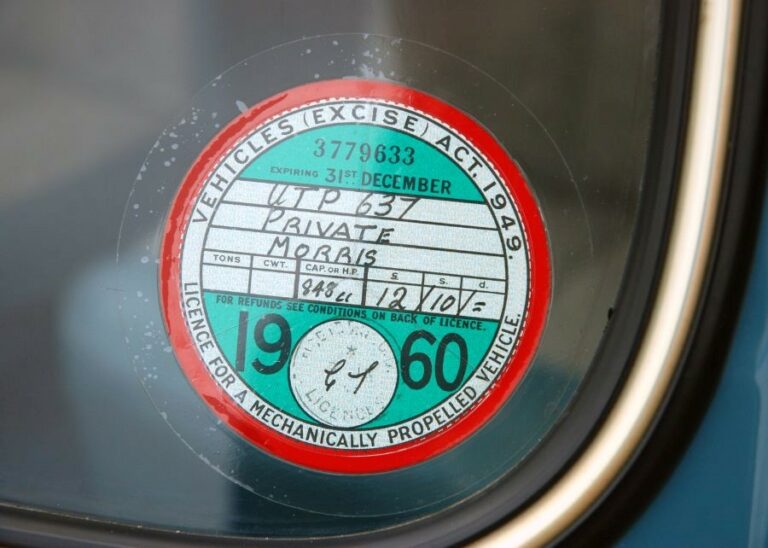Can an electric car tow a caravan? Electric vehicles and towing explained
Did you know that some electric cars can tow a caravan, but not all of them? There is of course the impact that towing a caravan can have on an electric vehicle to consider, such as the impact on the battery range and performance of the electric car itself.
According to Road and Track, towing can reduce the range of electric cars by up to 50% or more, depending on factors such as speed, terrain, weather and trailer weight. Towing can also increase the charging time and frequency of electric cars. So while electric cars can tow a caravan, they may not be the most practical or efficient option for long-distance trips or heavy loads.
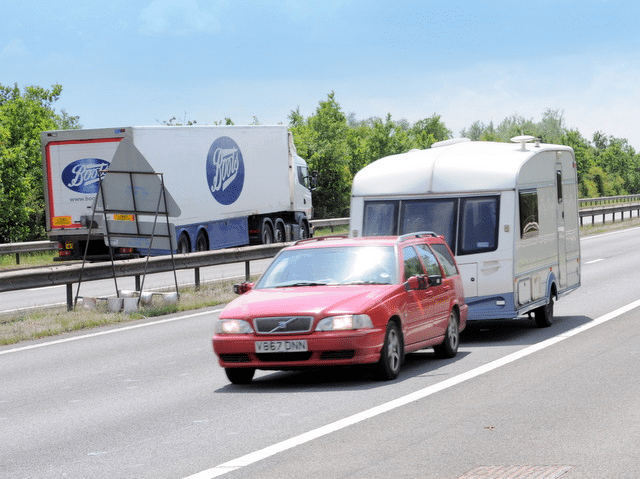
Best Electric Car for Towing a Caravan
Not all electric cars will be the best for towing a caravan, so we’ve narrowed it down for you. However, the truth is, there is no definitive answer to which electric car is the best for towing a caravan, as different models have different strengths and weaknesses.
These are just some of the factors that you may want to consider:
The towing capacity of the electric car, or the maximum weight of a braked trailer that it can pull. This should match or exceed the weight of your caravan and its contents. According to Buy a Car, some of the electric cars with the highest towing capacity are the BMW iX, Hyundai Ioniq 5, Tesla Model X and Tesla Model Y.
The range of electric vehicles, which is the distance that they can travel on a full charge. This will be reduced significantly when towing a caravan, so you may want to choose an electric car with a large battery and a high-efficiency rating. According to Top Charger, towing can reduce the range of electric cars by around 50% or more, depending on various factors.
The charging availability of electric vehicles, or the ease and speed of finding and using public charging stations along your route. You may want to choose an electric car that supports fast or rapid charging and has access to a wide network of compatible chargers. A top tip is to always ensure that you plan your journey and check the availability and status of chargers at your destination.
The driving performance of the electric car, which is how well it handles, accelerates, and brakes when towing a caravan. You may want to choose an electric car with a powerful motor, a smooth transmission, a stable suspension, and a good traction control system. According to Autocar, electric cars are better suited for towing than petrol or diesel cars because they have instant torque at any speed.
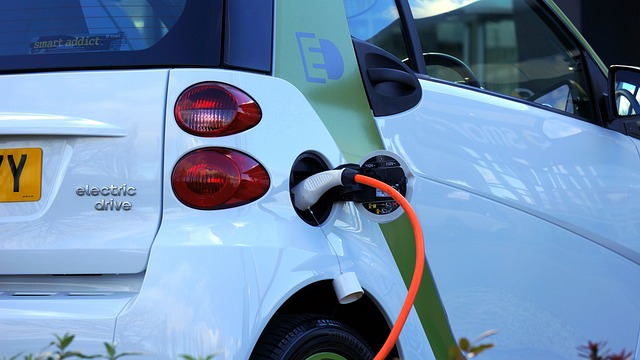
Ultimately, the best electric car for towing a caravan depends on your personal preferences, budget and needs. You may want to compare different models based on their specifications, reviews and awards before making a decision. Fully electric vehicles are great and most electric cars can tow, it’s just about picking the best one for you.
But what is type approval, and why does it affect EVs and caravans?
Well, type approval is a process of confirming that a vehicle, system, component or separate technical unit meets specified performance standards. According to the Vehicle Certification Agency, type approval is required for vehicles to be placed on the market in Great Britain and Northern Ireland. It affects electric vehicles and caravans because not all electric vehicles are designed or rated to tow a caravan, and they need to have type approval for towing to ensure they are safe and legal.
Without type approval, towing with an electric vehicle is illegal. According to sources, some electric vehicles, such as the MG ZS EV, do not have type approval for towing and cannot be fitted with a towbar. It’s also been reported that some caravans also need type approval to be registered and used on public roads.
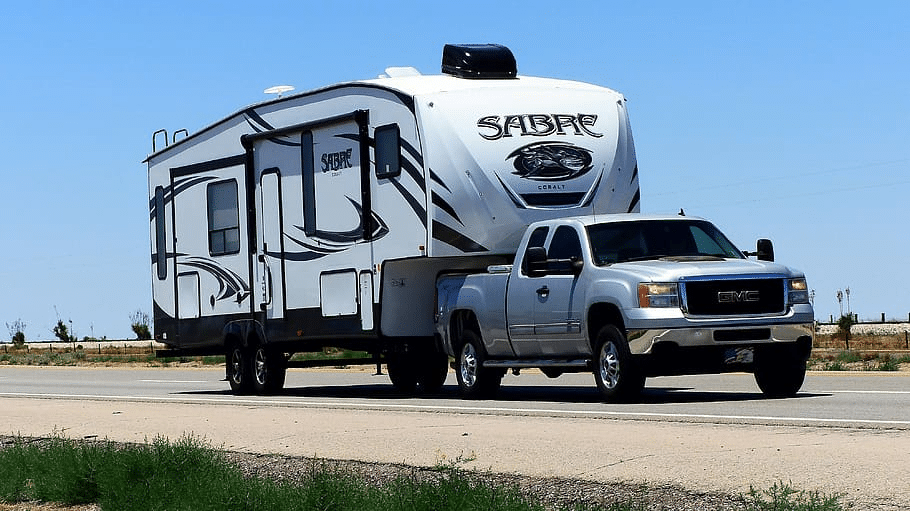
How Does Towing Affect Electric Driving?
Whether we like it or not, towing does affect electric driving. It reduces the range of the electric motor and can decrease the battery life by up to 50% or more, depending on factors such as speed, terrain, weather and trailer weight. For electric vehicles, this means that owners will need to charge more frequently and for longer when towing than when driving solo.
Towing also affects the performance and efficiency of the EV, as it requires more power and torque from the electric motor to overcome the extra weight and drag. According to Better Safe, towing can also increase the wear and tear on the electric vehicles’ components, such as brakes, tires and suspension. Therefore, towing with an electric car requires careful planning, preparation and maintenance to ensure a safe and smooth journey.
What else do I need to know about towing with an electric car?
The short answer to the question, can all electric cars tow, is no. Sometimes the best electric cars aren’t the best for towing. Electric cars capable of towing are an incredible gift but sadly not all electric cars can tow. You’ll need to check the manufacturer’s specifications and make sure the car has a homologated towing capacity and a towbar option.
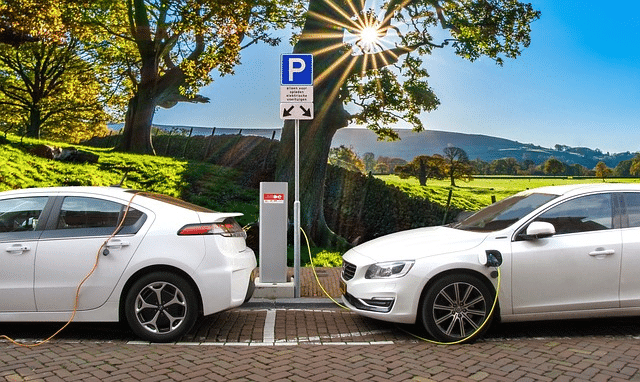
Here are just some examples of electric cars that can tow, and they are some of the best ones according to various sources:
Polestar 4 Long Range Dual Motor: This sleek and sporty EV can tow up to 2000kg and has a range of 295 miles. It also has a spacious boot and a high-quality interior.
Kia EV9 AWD: This large and practical SUV can tow up to 2500kg and has a range of 280 miles. It also has a roomy cabin and a seven-year warranty.
Tesla Model X Long Range: This futuristic and versatile EV can tow up to 2250kg and has a range of 360 miles. It also has a huge touchscreen, falcon-wing doors, and seating for up to seven people.
Range Anxiety: How Far Can an Electric Car Tow a Caravan?
Towing with an electric car will reduce its range significantly, as mentioned above, it can be reduced by up to 50% when towing a caravan. The exact amount depends on factors such as the weight and aerodynamics of the trailer, the speed and terrain, and the weather conditions. It’s worth planning your journey carefully and allowing for more frequent charging stops.
For example, if an electric car has a regular range of 300 miles, it may only be able to tow a caravan for 150 miles before needing to recharge. The exact range reduction depends on factors such as the weight and aerodynamics of the caravan, the speed and terrain, and the weather conditions. Therefore, it is important to plan the journey carefully and allow for more frequent charging stops when towing a caravan with an electric car.
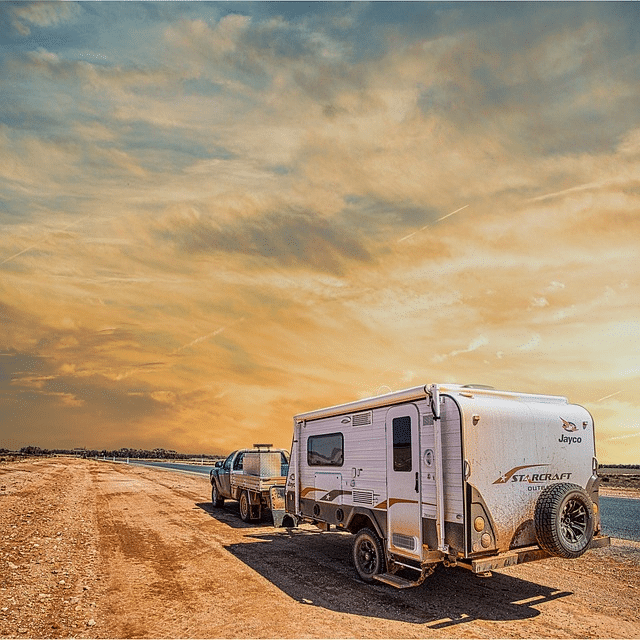
The efficiency of an electric car will also be affected by towing. Towing with an electric car will affect its efficiency negatively, meaning it will use more electricity per mile and have a lower range. This means you will use more electricity per mile and pay more for charging. You can use online tools or apps to estimate the cost of charging based on your route and trailer weight. For example, a Tesla Model Y that has an efficiency of 270 Wh/mi without towing can have an efficiency of 380 Wh/mi when towing a 900 kg trailer.
Towing can also affect other aspects of an electric car’s performance, such as its regenerative braking system, which converts kinetic energy from slowing down into electricity for the batteries. Therefore, it is important to check the manufacturer’s specifications and follow the legal and safety guidelines when towing an electric car.
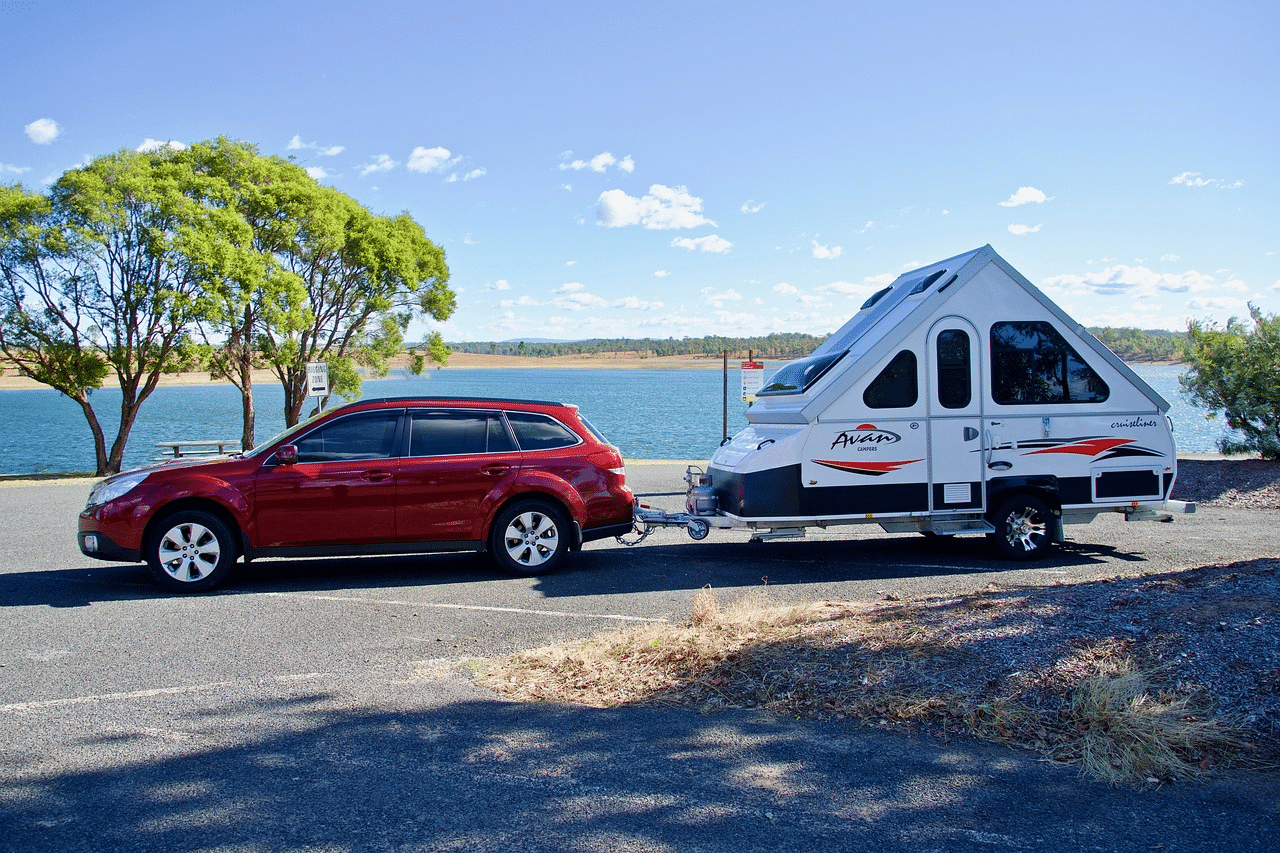
What are the Benefits of Towing with an Electric Vehicle?
There are some benefits of towing with an electric car. For example, you can enjoy the smooth and quiet performance of the electric motor, the instant torque delivery, and the regenerative braking that can help slow down the car and trailer. You can also access some low-emission zones and avoid paying congestion charges in some cities.
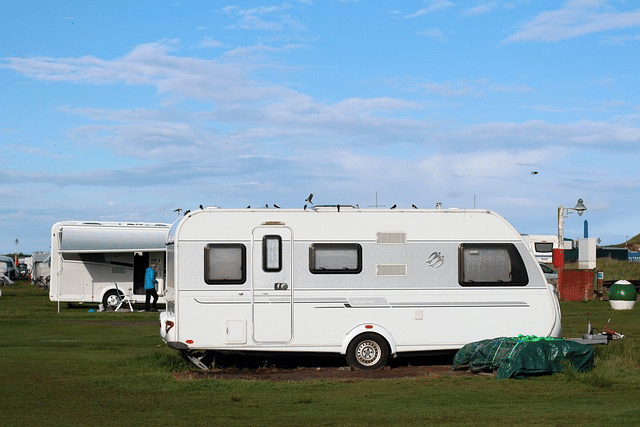
Let’s have a look at some of the benefits of towing with an electric vehicle, such as:
Instant torque: Electric motors produce instant torque at any speed, which is required for towing. This means that electric vehicles can pull heavy loads with ease and accelerate faster than conventional vehicles, according to Top Charger.
Smooth and quiet performance: Electric vehicles have no engine noise or vibration, making driving more comfortable and relaxing. They also have fewer moving parts and less maintenance than conventional vehicles.
Regenerative braking: Electric vehicles can use regenerative braking to slow down the car and trailer and convert some of the kinetic energy into electricity for the batteries. This can help reduce brake wear and improve efficiency, according to Practical Caravan.
Low-emission zones and congestion charges: Electric vehicles can access some low-emission zones and avoid paying congestion charges in some cities, which can save money and reduce environmental impact, says Autocar.
Overall, there is no definitive answer to whether electric vehicles are better for towing compared to petrol and diesel cars, as each type of engine has its advantages and disadvantages. Electric vehicles are more environmentally friendly than petrol and diesel cars and they can also have a high towing capacity, depending on the model and the battery size.
Jamjar.com makes selling your car quick, easy, and hassle-free. By comparing offers from a trusted network of UK car buyers, you get the best price without the stress of negotiating or haggling. There are no hidden fees, no obligation to sell, and the entire process is 100% online. Whether your car is nearly new or well-used, Jamjar helps you sell it fast and for a fair price—saving you time and effort.
SELL YOUR CAR HERE: https://www.jamjar.com/sell-my-car/



















